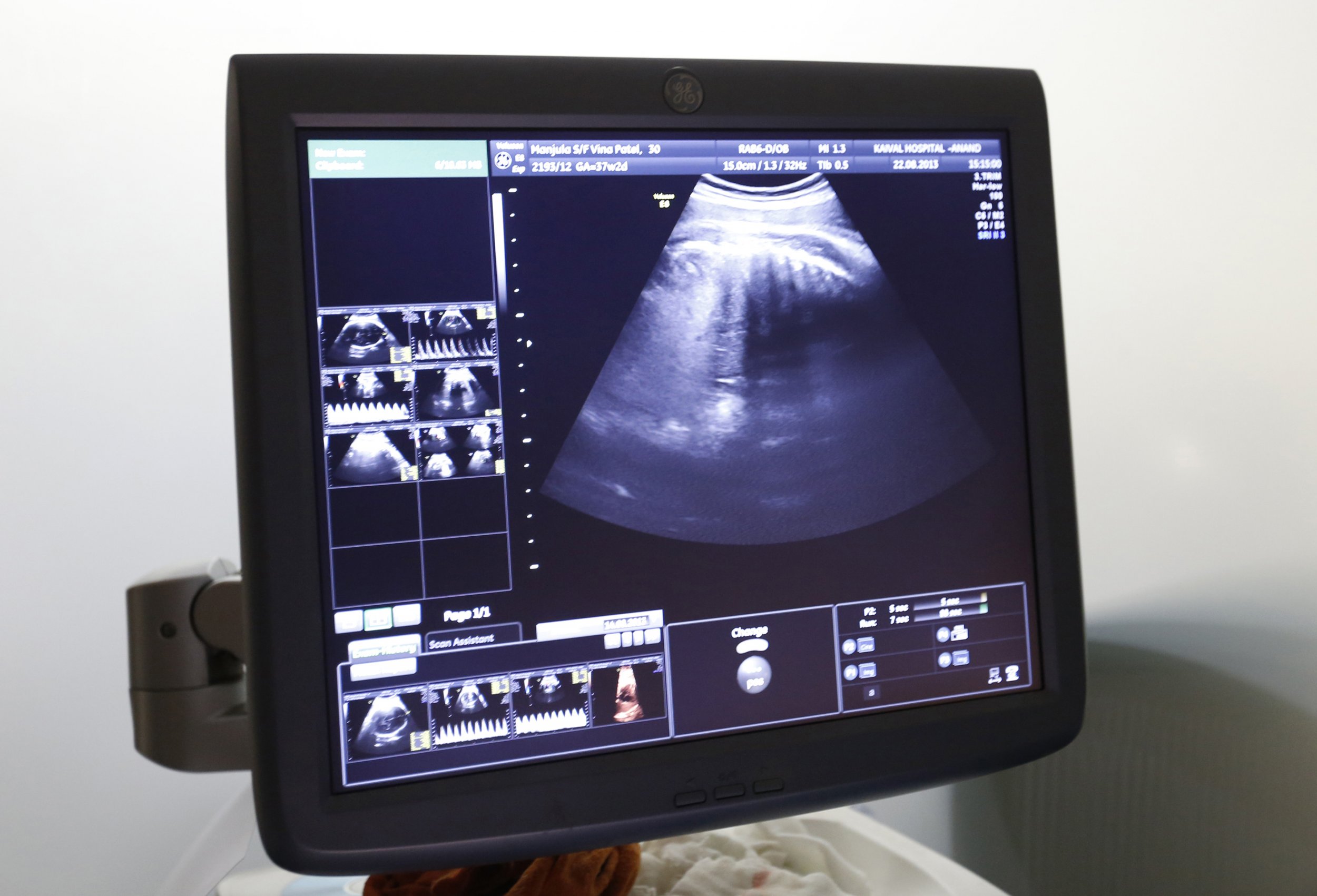
A team of scientists in the U.K. used the controversial gene-editing technology known as CRISPR-Cas9 to alter human embryos at the earliest stage of gestation, and their findings, published Wednesday on the Nature website, provide new insight into why some women have miscarriages. The study also could be helpful for improving in vitro fertilization (IVF) technology.
"If we knew the key genes for an embryo to develop successfully that would, I would hope in the future, lead to improvements in IVF technology and give us really important insights into why some pregnancies fail," Dr. Kathy Niakan, a co-author of the study, told BBC News.
The team of scientists from the Francis Crick Institute in London used CRISPR—the experimental biomedical technique that uses snippets of bacteria as a pair of "molecular scissors"—to slice out the gene responsible for producing a protein known as OCT4. There's limited information on the role of this gene, though scientists widely recognize that the OCT4 protein plays a critical part in early embryonic development; it is expressed as early as the third day.
The scientists obtained donated embryos from couples who no longer wished to undergo IVF. With CRISPR, they edited the specific gene in the embryos to limit the production of OCT4, and then monitored their development. They found that roughly 80 percent of the edited embryos didn't develop into blastocysts, the stage when an embryo implants into the womb—usually five to seven days after fertilization.
Though IVF technology has come a long way, the success rate is still relatively low. According to the U.S. Centers for Disease Control and Prevention, roughly 36 percent of IVF cycles result in a viable pregnancy. Out of that number, only 24 percent produce a baby.
There are many ways CRISPR could improve IVF, though it will be decades before clinical trials are conducted. The technology could help ensure the procedure results in a positive outcome. CRISPR could also feasibly be used at an even earlier stage to see that the baby turns out healthy.

Jennifer Doudna, a microbiologist at the University of California, Berkeley, and co-discoverer of the breakthrough gene-editing technique, told Newsweek in August that she predicts CRISPR will revolutionize IVF, allowing clinicians to edit known genetic mutations from sperm or eggs before fertilization rather than at the embryonic stage. But that wouldn't necessarily eliminate the discomfort people feel when it comes to the power of this technology.
Critics of CRISPR claim the research will bring medicine one step closer to the age of designer babies, which could eventually lead to irreversible changes in human DNA that would be passed along to subsequent generations. In August, a team of scientists, led by a researcher at Oregon Health and Science University, published a paper showing it's possible to alter human embryo DNA to prevent congenital heart disease. The scientists used embryos produced specifically for the experiment.
Uncommon Knowledge
Newsweek is committed to challenging conventional wisdom and finding connections in the search for common ground.
Newsweek is committed to challenging conventional wisdom and finding connections in the search for common ground.
About the writer
Jessica Firger is a staff writer at Newsweek, where she covers all things health. She previously worked as a health editor ... Read more
To read how Newsweek uses AI as a newsroom tool, Click here.






